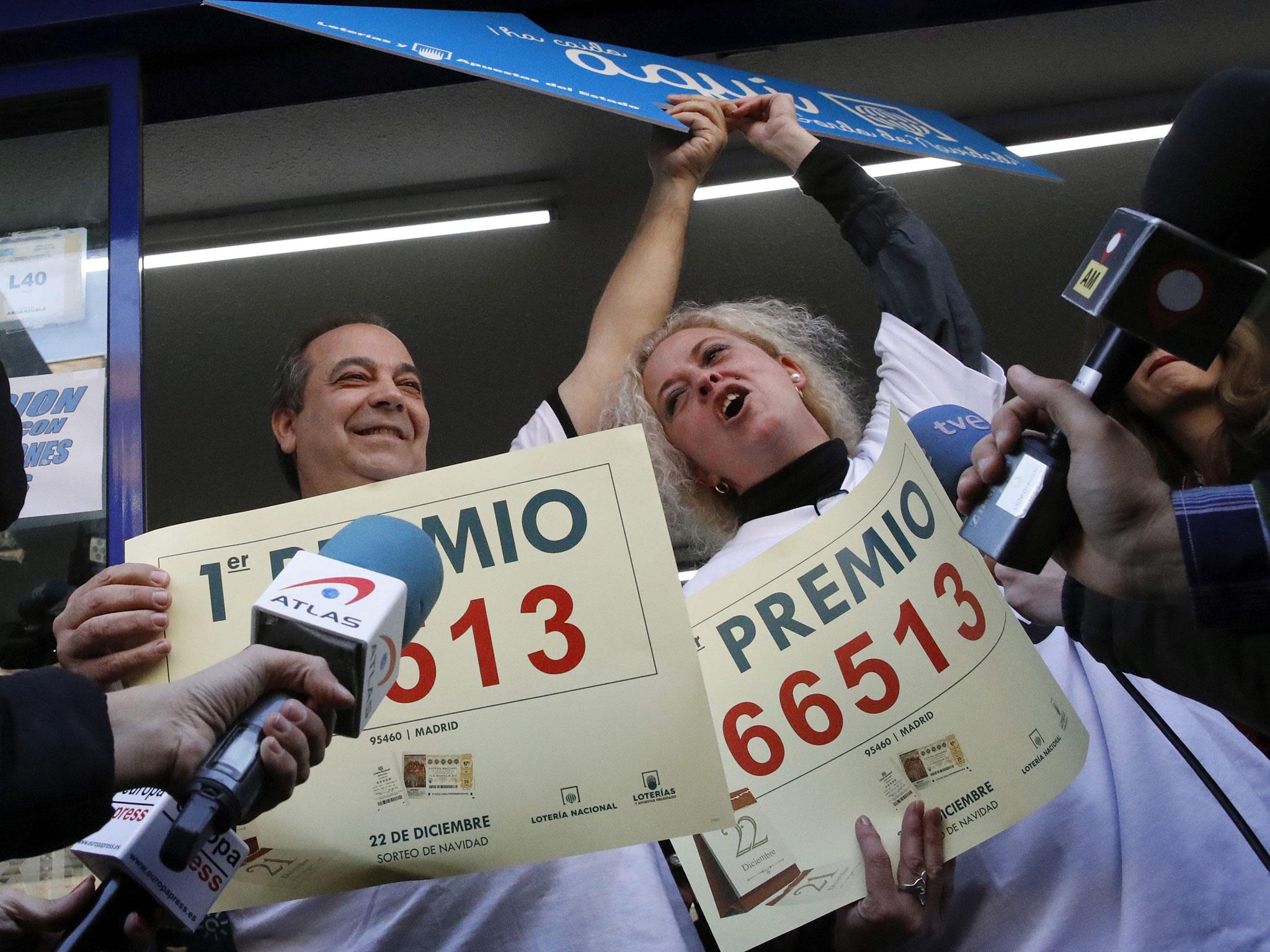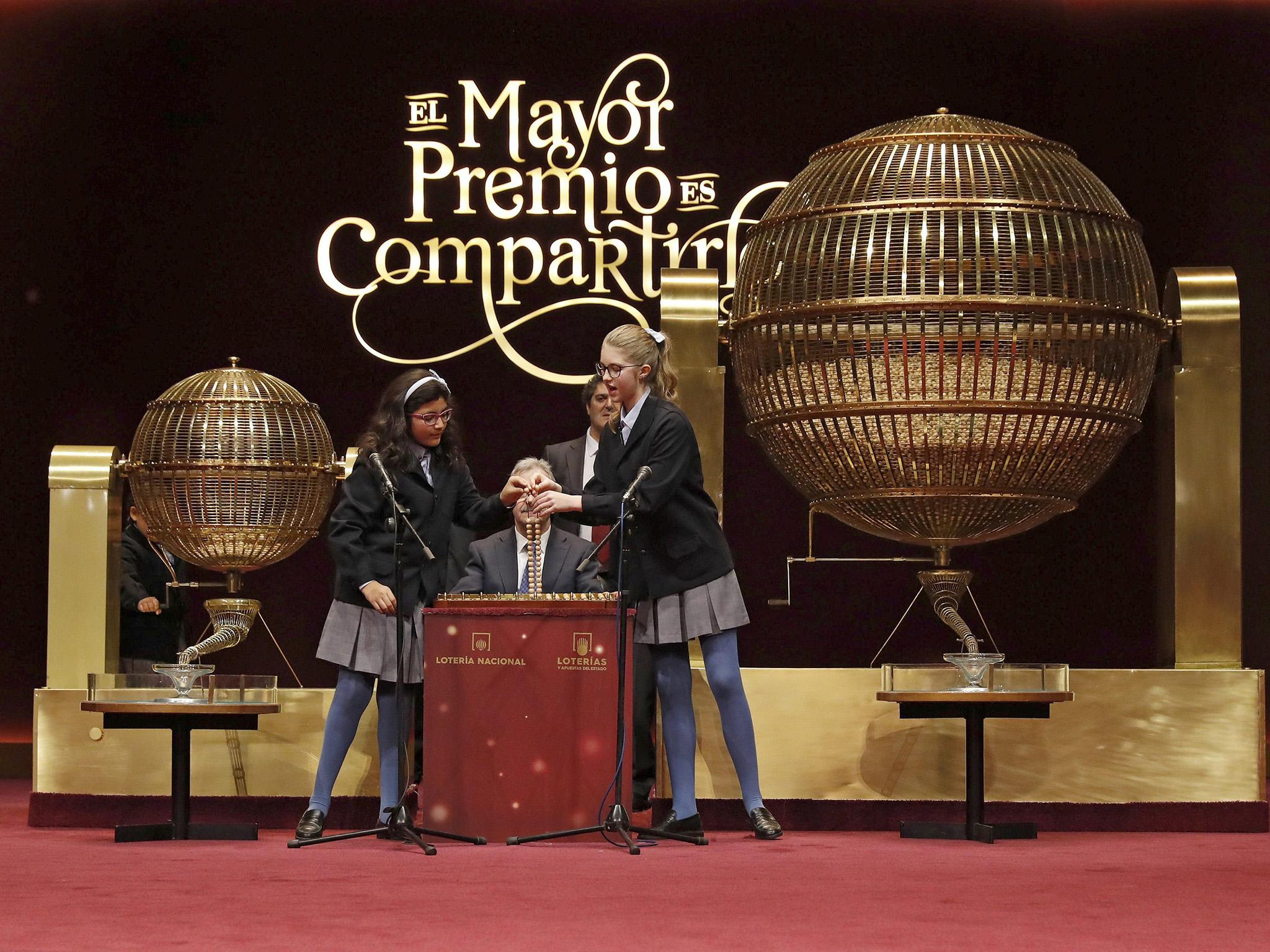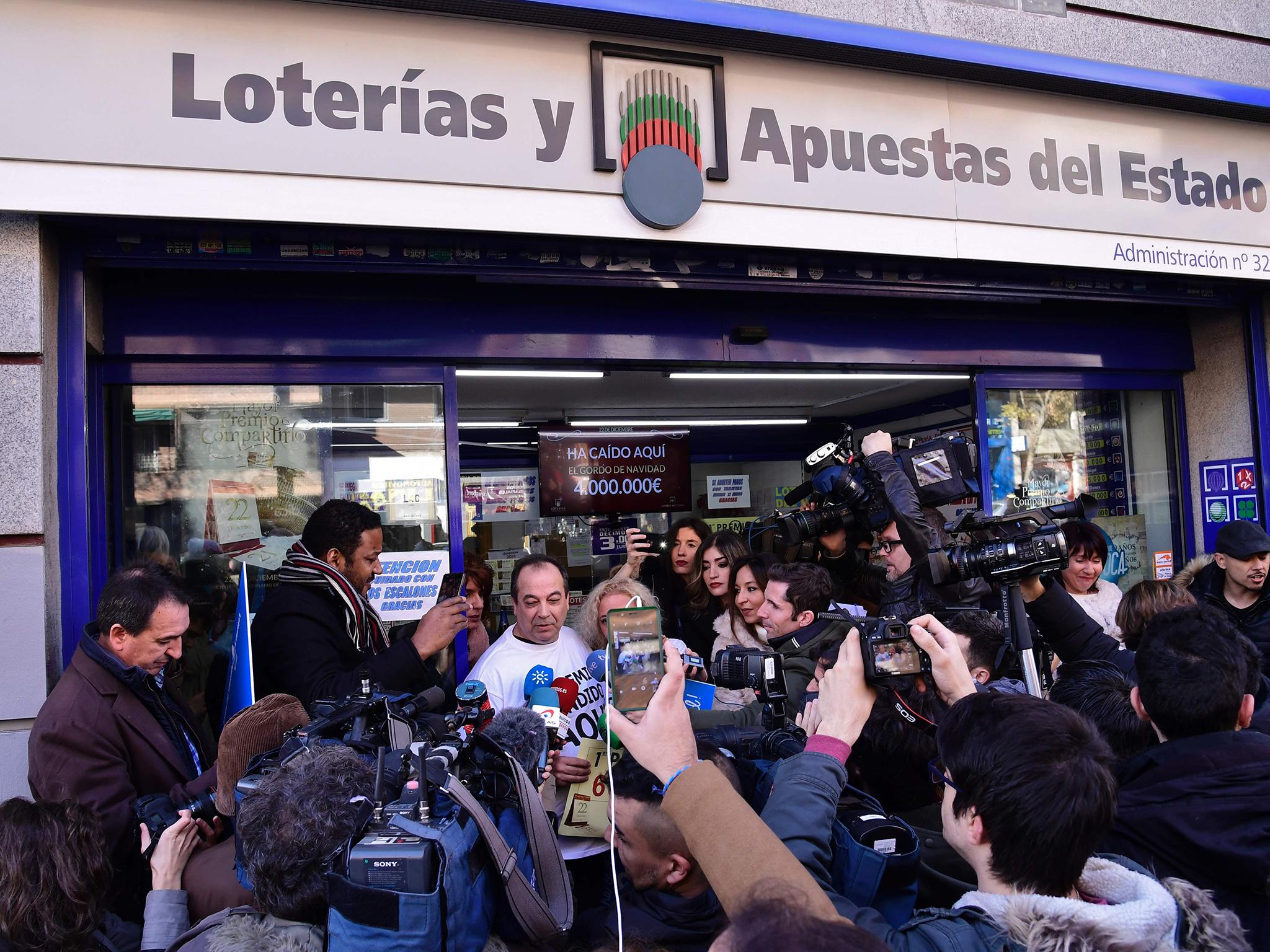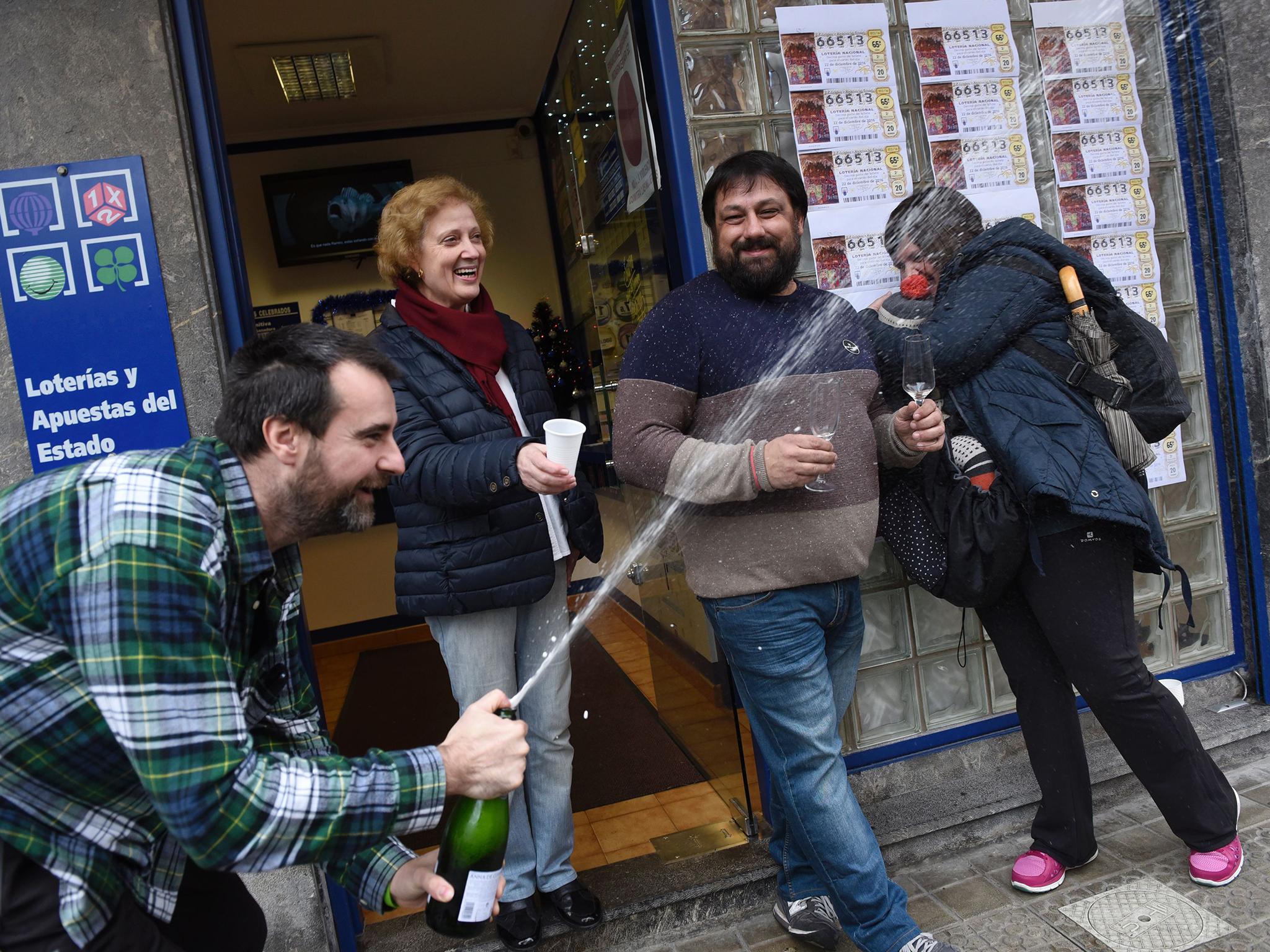El Gordo: Single Spanish town wins 2.6 billion euro Christmas lottery
The number 66513 appeared on 1,650 tickets, with each ticket holder winning 400,000 euros

Your support helps us to tell the story
From reproductive rights to climate change to Big Tech, The Independent is on the ground when the story is developing. Whether it's investigating the financials of Elon Musk's pro-Trump PAC or producing our latest documentary, 'The A Word', which shines a light on the American women fighting for reproductive rights, we know how important it is to parse out the facts from the messaging.
At such a critical moment in US history, we need reporters on the ground. Your donation allows us to keep sending journalists to speak to both sides of the story.
The Independent is trusted by Americans across the entire political spectrum. And unlike many other quality news outlets, we choose not to lock Americans out of our reporting and analysis with paywalls. We believe quality journalism should be available to everyone, paid for by those who can afford it.
Your support makes all the difference.Celebrations erupted across Madrid on Thursday after all the tickets with the top prize-winning number in Spain's 2.6 billion-euro (£2.2 billion) Christmas lottery were sold in one city neighbourhood.
The number 66513 appeared on 1,650 tickets in the lottery known as El Gordo (The Fat One), with each ticket holder winning 400,000 euros (£340,000).
The winning tickets are normally sold in several different lottery offices around the country but this time they were all sold from one office in the modest Acacias neighbourhood of the Spanish capital.

People could be seen celebrating in shops and bars close to the lottery office — and Spanish television broadcast images of people dancing and singing in the streets elsewhere who won some of the lottery's lesser prizes.
Other lotteries have larger individual top prizes but El Gordo, which dates from 1812, is ranked as the world's richest for the total prize money on offer. This year it dished out 25 million prizes. Standard tickets cost 20 euros (£17) and people traditionally chip in and buy shares in several tickets with friends, family or workmates.
One of the fortunate was bank worker Marian Lopez, 37, who is four months pregnant and shared the top winning ticket with her mother.
"The 'Fat One' has struck me twice," she joked, referring to her slight bulge. She said she might spend the money fixing up her house.

Vicente Villaverde, 44, a gas company worker who lives across the street from the lottery office, said he has bought tickets ending in 13 for the past six years.
"As I have had so much bad luck in my life, I have always said the number 13 will bring me fortune. And this year it has!" said Mr Villaverde, dressed in blue work overalls.
He said he planned to get speech classes for his seven-year-old son who has Down Syndrome and buy his girlfriend a car.
"The ham, the champagne, the whisky are on me this year!" he told his partner over the phone.

Augustin Ramos, who took over running the lucky lottery office four months ago, bought one of the 1,650 tickets for himself and his wife, Maria Josefa Rojo Cabrera.
"I felt happiness seeing that those that won needed it," said Ms Rojo Cabrera.
Queues form outside lottery booths weeks ahead of the Dec. 22 draw and people tune in across all media on Thursday to find out if they are among the lucky ones. The prize ticket numbers are sung out by pupils of Madrid's San Ildefonso School in a nationally televised event from the city's Teatro Real opera house.
Spain established its national lottery as a charity in 1763, during the reign of King Carlos III, but its objective gradually shifted toward filling state coffers.
Organisers said ticket sales totaled 2.6 billion euros this year, up 3.5 percent from last year.
Associated Press
Join our commenting forum
Join thought-provoking conversations, follow other Independent readers and see their replies
Comments